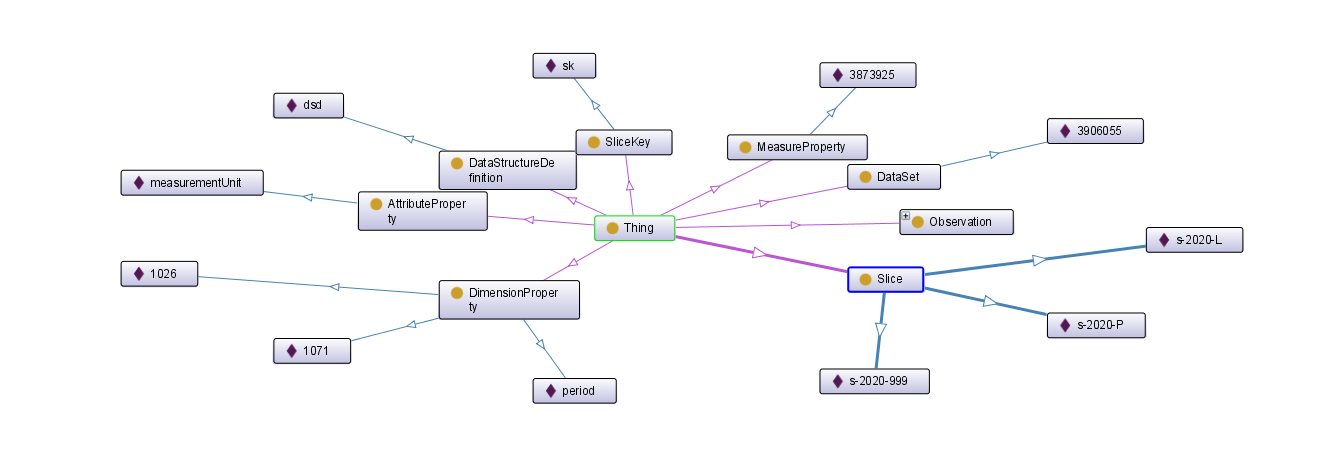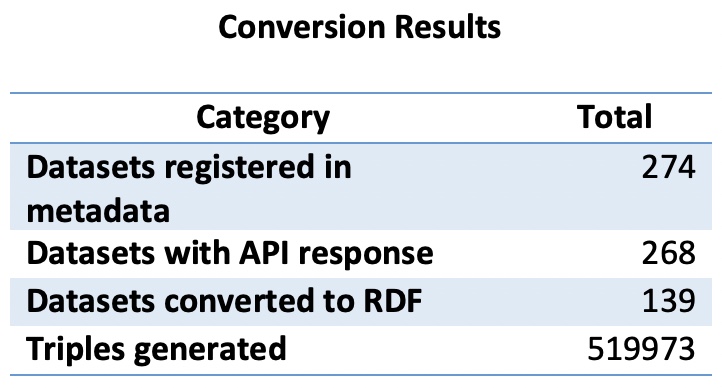Knowledge Graph Construct for Official Statistics Metadata
Conference
65th ISI World Statistics Congress
Format: CPS Abstract - WSC 2025
Keywords: data cube, interoperability, knowledge graph, metadata, ontology, semantic web
Session: CPS 77 - Transforming National Statistical Systems
Monday 6 October 4 p.m. - 5 p.m. (Europe/Amsterdam)
Abstract
In today's technological era, making the right decisions heavily relies on how quickly we obtain accurate knowledge. Rapid and accurate knowledge discovery can be realized through an object-based semantic search system which understands the intent behind user-entered keywords. Building a semantic search system requires a knowledge graph in the format of Resource Description Framework (RDF) as a source of semantic information. Without a knowledge graph, search engines cannot understand keywords semantically, thus slowing down the search process. The construction of knowledge graph syntax must adhere to formal standards to ensure queries yield accurate information. Additionally, formal standards enable reusability of the knowledge graph for broader knowledge development. Providing a knowledge graph also supports interoperability through the creation of services that respond with results of SPARQL query received from user requests. Consequently, not only the semantic search application, but many other applications can also utilize the knowledge graph that has been built to retrieve necessary information from the knowledge base. Manual construction of the knowledge graph syntax is time-consuming. This construction time can be shortened using programming algorithms that gather source data and organize them into a formal data structure.
Meanwhile, Statistics Indonesia (BPS) as a government agency responsible for providing official statistics implements the Generic Statistical Business Process Model (GSBPM) as the standard for statistical business processes in carrying out its statistical programs. GSBPM comprises eight phases, each requiring metadata as references in managing data flow from one phase to the next. Therefore, BPS specifically creates official statistical metadata by adopting the Generic Statistical Information Model (GSIM) and builds the Metadata Management System (MMS) to manage this metadata and provide APIs in JSON format for metadata exchange. In addition, BPS publishes official statistics to the public via websites and publications. As the amount of data released increases over time, efforts are needed to enhance and speed up the data search process. One such effort includes providing an object-based semantic search system utilizing knowledge graphs sourced from BPS's official statistical metadata managed in MMS. The World Wide Web Consortium (W3C) has established formal standards for formalizing knowledge graphs for datasets included in statistical metadata under the RDF Data Cube Vocabulary concept.
The objective of this research is to build a programming algorithm to convert metadata from JSON format to RDF to shorten the time for constructing the BPS’s official statistical knowledge graph syntax using the RDF Data Cube Vocabulary concept. This approach aims to build a standardized knowledge graph quickly, supporting reuse for knowledge development and applications requiring BPS’s official statistical semantic information.
Figures/Tables
Knowledge Graph Visualization for Dataset 3906055

Conversion Results

